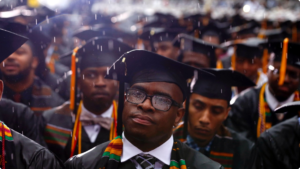Throughout the history of the United States, there have been many movements started to bring awareness to the injustices of specific communities, and minority groups. The freedom that the #BlackLivesMatter movement speaks of is one that has not been achieved as yet. It is a freedom that is a work in progress, though, we have came along way from slavery, people must understand that we are still not in a space and time where we as African Americans, and Minorities feel the same freedoms as our white brothers and sisters. The way we address this issue is by bringing awareness to the key problem that is rooted in the racist established system that still exists today. I have heard in class and outside the classroom that we should be happy slavery no longer exists, however, the ideals and the racism behind it still does. This is the reason why we continue to fight and continue to create a movement that helps us create a voice for our current situation. The #BlackLivesMatter movement have been criticized for encouraging violence, even when the movement has made it clear that they are not the reason why people commit some of these violent acts towards innocent people, but, the medias portrayal and narrative of the movement takes away the meaning behind why it was established. When I look at TV programs such as Tomi Lahren’s show, that preaches a narrative that is not representative of what the #BlackLivesMatter stands for, it takes away from the importance of the movement and getting people to acknowledge the problems that plagues the country. Without acknowledgement we are clouded by a false narrative that taps into a historical mentality that existed in the times of Jim Crow and the civil rights movement. There cannot be any progress with people trying to justify their beliefs, and way of thinking because of a movement that does not affect them. Instead of looking to places that feeds into ones ignorance, you must step outside that box and actually look into the severity of the situation. It is hard to understand a movement where you have never had to fight for the rights that the movement is seeking to achieve, therefore, without learning and understanding the movement from a historical point of view can help eliminate the ignorance that exits. Somebody who is aware is not necessarily sensitive to the movement because they do not have to worry about the privilege they have.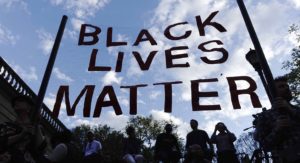
Author Archives: Dantae Elliott
Fear in a colorblind world
“If the problem of the twentieth century was, in W.E.B. Du Bois’s famous words, “the problem of the color line”, the the problem of the twenty-first century is the problem of colorblindness, the refusal to acknowledge the causes and consequences of enduring racial stratification.” Naomi Murakawa
After the results of the 2016 Presidential election, many people felt a sense of pride for finally receiving a type of governmental change that would be different from the norm. Even though this was a great moment for many people, for others it was the complete opposite. The day after the election, many minorities including myself felt an overwhelming feeling of fear, the fear of existing in a society that does not value their existence as much as they would hope. Imagine living in a society where a Presidential candidate can build their entire campaign off of hate and discrimination of different racial groups, and they still end up being the next President of the the land of the free. It almost sounds like a fictional story, however it is the reality that many minorities are facing today. The problem that is left by the racially filled campaign is what is troublesome, and it is what brings fear to Muslims, African Americans, LGBTQ, and Latino communities.
The 21st century is the age of being colorblind, many people use this term to express how they feel about racial inequalities within our society. This concept is one that is widely used to explain peoples stance on racial issue instead of acknowledging the severity of the problems. What this election cycle showed was how severe the racial tensions in the United States really are, people who claim that they were colorblind and could not see color were forced to recognize the discrimination that plagues our society. For us minorities, this is nothing new this is what we’ve known from an early age. We are thought to act a certain way and function within a society in order to fit into the niche that is considered the common norm. This is the way society was established for all who falls under the category of “the others”. Many people did not acknowledge that there was a racial problem in the United States in this day an age until some recent events, at the same time there are many people who refuse to acknowledge it.
The damage that the Trump campaign left on this already battered society is what is important for people to understand. While walking in the hall way at school I heard someone say that minorities were being dramatic for their reaction to the Trump being elected, even though people were just fearful for their wellbeing. What people must understand is that minorities have to learn at a young age that they are different in society and will not have the same privilege as their white peers. It is not a difference such as personality or interest but it is a racial difference that dates back to the time of slavery, Jim Crow, The Civil Rights Movement, and Now the #BlackLivesMatter movement. For those who thought that racism died when President Obama was elected, they were proved wrong by this campaign. The biggest problem with racial inequality in this country is peoples refusal to acknowledge the fact that racism is alive and well, and we as a nation has a long way to go before there are further advancements to racial equality. 
Making America Great Again: Putting the 2016 Election into historical context
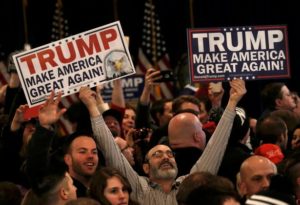
“In these trying circumstances, the black revolution is much more than a struggle for the rights of Negroes. It is forcing America to face all its interrelated flaws- racism, poverty, militarism, and materialism. it is exposing the evils that rooted deeply in the whole structure of our society. It reveals systemic rather than superficial flaws and suggests that radical reconstruction of society itself is the real issue to be faced.” Martin Luther King Jr.
In reading the introduction and first chapter to From #BLACKLIVESMATTER To Black Liberation by Keeanga-Yamahtta Taylor, it sparked my thoughts on the recent election, and the slogan that to “Make America Great Again”. This slogan has become attractive to a certain demographic in the United States, who has a specific ideology of what a “great America” looks to them. For many, this type of ignorance, discrimination, and racism, has been apart of their life for as long as they can remember, it has been embedded and ingrained into the common knowledge as a culture and racial group. For many years, African Americans have had to accept and overcome the painful history that they come from and put into perspective the role they served in the past comparing it to the injustices that followed and is still happening in modern society. When I hear the phrase “Make America Great Again” I do not connect nor do I feel comfortable with it because there is a connotation behind that phrase for the people who uphold its meaning.
In my Social Justice class, I had a discussion with my classmate who seems to be in disbelief that African Americans, Latinos, Muslims and other minorities are still being discriminated against in the way that this election has revealed. For me, it is no surprise because I have always have to be aware of these social and systemic inequalities that cripples minority groups in this country. The truth is the country has come a long way, however, there have always been the idea of “us” and “the others”, when one racial group has always been upheld as the “superior” then there was no way “the others” could stand in their own superiority. If we take this slogan of making America Great again, along with the ideologies of the people who believe in this, it takes us back to a time where society had definitive rules and regulation that kept minority groups below the spectrum of freedom, equality and success. When examining the social issues that America is facing, this slogan fits perfectly into understanding the systematic oppression that many African Americans are facing in 2016. In the Grand scheme of it all, a lot progress has been made, socially, for African Americans but, not much has changed when you examine systematic racism.
When Obama was elected as president, there was a sense of relief by African Americans because he was going to be the first African American president. This was a moment that many people felt that racism was finally going to be decimated from societal norms. However, there is more that needs to be done on a systemic level in order for everyone to have an equal base in society. Many people use Obama, and other successful black celebrities to make the point that, there cannot be any so called discrimination because they made it, but that is not the case. These few black Americans cannot represent the betterment of an entire group when the system still needs to be reconstructed. This also cannot be the argument for white Americans to make when the issue of race comes up, because if this was so, then the #BlackLivesMatter movement would not have developed, and gotten stronger during Barack Obamas presidency. As proven by the Trump campaign, America has a long way to go in recognizing the the racial disparity, and the systematic racism that plagues the modern American society.
“Hair”
My hair speaks to the promise land,
Windless years of slavery, discrimination and destruction by the upper hand,
I was given an image, a standard of beauty, that neglected my natural essence,
I became what society wanted and not what my heritage sewed into the fabric of my existence,
I get shamed and condemned by societal norms for letting my hair live in its natural state, and accepting my curls as part of my identity,
But when people outside my race wears the same hairdo it somehow becomes “trendy” and “new, meanwhile these so-called trends have been ingrained into my lifestyle since the beginning of ancient civilizations,
I turn on the tv and see commercials, celebrities, and fashion shows introducing these hairstyles as a new and hip art form that has just been discovered,
While I fight to keep my naturality,
When I look at my curls I don’t see a trend,
I see my identity, my roots, my history, mi herencia, mi yo,
But when the westernized ideals adapt this new “trend” I become less transparent, ausente
What I see is not just a trend, it’s not new, and it’s not just a hairstyle,
I see black heritage that has spanned generations and continents.
Living the “black” truth
“You were born into a society which spelled out with brutal clarity, and in as many ways as possible, that you were a worthless human being. You were not expected to aspire to existence: you were expected to make peace with mediocrity.” (The Fire Next Time, James Baldwin)
For my entire college career I have felt as if I had to constantly prove my place among the academic community in an environment where I am supposed to become more academically advanced and challenged. Going to school and getting an education is the one thing that was always made clear to me by my family and teachers, this was the normal path that I was intended to take. However, I did not see another side of this until I went away to college, where I was visible the minority. Everyday I go to class, I am most likely going to be the representation of the minority population that exits on campus. This may seem as a complaint, however, it is far from that. This situation has helped me realized that even though for me it is normal to be doing what I am doing, in reality the problems that plagues my community has created a stereotype that overwhelm the success of me and my peers. Its heart breaking to realize that you have to work twice as hard in and outside the classroom to feel some recognition of what you have been doing just because you are part of the population that has “made it out”, even though the circumstances are different.
As hard as this is for me to accept, it is the reality of things, it is my day to day reality. After watching a Donald Trump rally in Ohio, I realized why young black college students like myself, has to fight for a place in the college environment. Watching Trump stand before an all white audience and proclaim that, “no housing, no homes, no ownership. And I ask you this, I ask you this- crime, all of the problems- to the African Americans, who I employ, what the hell do you have to lose?”, These comments are a reflection of the society as a whole, while the crowd cheers upon hearing some generalize, stereotype and insult an entire group of people. It then made a lot of sense to me why people at school are often taken back my intelligence, because we have terrible schools, we are uneducated and we are all criminals therefore we have nothing to lose when worse comes to worse.
Historically, we were not meant for success, we were not even considered to be humans. But looking back through history and the writings of James Baldwin and Stokely Carmichael & Charles Hamilton, we must recognize where we come from in order to understand our place in society today. When James Baldwin says, “well, the black man has functioned in the white mans world as a fixed star, as an immovable pillar: and as he moves out of his place, heaven and earth are shaken to their foundations”, we must understand where that comes from and why it is so dangerous to see politicians spew these stereotypical rhetorics that brings out the worse of society. When I fight for my place my college i’m continuing the work that my ancestors created for me, I am establishing my self worth and the worth of those who will come after me, and the empowerment of black knowledge, power and excellence.
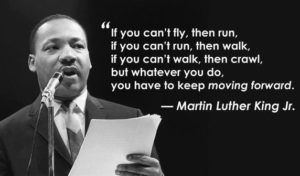
The Era of the Colorblind
“African American criminality became one of the most widely accepted bases for justifying prejudicial thinking, discriminatory treatment, and/or acceptance of racial violence as an instrument of public safety” (The Condemnation of Blackness Khalil Gibran Muhammad)
I often ponder with the idea that I have to constantly show one side of my personality to people who I feel comfortable with and have a lot in common with culturally and physically and the other side with a different group. This stems from having to acknowledge the negative stereotypes that comes with being an African America. But where did this negative connotation come form with the black community? Whenever a black man is walking in a neighborhood where he is not the norm, then he might have to encounter the police at some point questioning his presence in such an environment, and this is the sad truth. There is an overwhelming belief that African Americans are not successful, educated and we are all prone to violence and becoming criminals, however there are other factors that contribute to this argument whether there is evidence or not. The biggest issue with these beliefs is the link between race and crime, you could in fact have the same amount of crime being committed by another racial group but it still does not have the same effect. According to Khalil Muhammad, “to change the future of race relations- because crime itself was not a core issue. Rather, the problem was racial criminalization: the stigmatization of crime as “black” and the masking of crime among whites as individual failure. The practice of linking crime to blacks, as a racial group, but not whites, reinforced and reproduced racial inequality”.
This makes me think, and should make everyone who feels as if there is not a problem think too. If I thought about the many times where my friends and I have been walking around campus minding our business at night, and people are visible uncomfortable walking by us, as if we are up to no good or we are going to do something to them. Every time I have this discussion questioning these stereotypes and its historical background, I always get the response of “I am colorblind” and “it has nothing to with race” but “it is shown that there are a lot of African Americans who have been arrested or is involved with criminal activities”. It is very common to hear people coin the term “colorblind” when asked about racial injustices and discrimination of a certain ethnic group. This may be viewed as an innocent comment that does not mean any harm, however, for African Americans and other minority groups it can be very challenging. Here is why, when a person response to racial inequality as “I am colorblind, I don’t see color” it neglects the constant battle that African Americans have been facing since the establishment of the United States. This is seen as another way of not dealing with/addressing the issues at hand, which is further creating a bigger problem, when the problem is being constantly brushed under the rug.
Looking from a historical point of view Khalil mentions, “how did European immigrants, the Irish and the Italians and the Polish, for example- gradually shed their criminal identities while blacks did not? In other words, how did criminality go from plural to singular?”. This very important to note because this idea is still alive in 2016. It may not be explicitly said that African Americans are prone to crime and violence but the implication is there. The thing that bothers me the most about this is the argument that most people make claiming that people are genetically predisposed to committing violent crimes, which is an ancient stereotype that has lived on for years. According to the excerpt from The Condemnation of Blackness, “but where the “negro factor” is concerned, Henderson continued, “racial inheritance, physical and mental inferiority, barbarian and slave ancestry and culture”. Because of these existing stereotypes, claiming to be colorblind in the hight of racial inequality and tensions, negate the importance of having conversations about these things and addressing them, but more importantly, having political figures reinstate this rhetoric and stereotypes for the younger generation is detrimental to having the progress that is needed to understanding the severity of racial inequality. 
Facing History in 2016
“The significance of slavery in the United States to the whole social development of America lay in the ultimate relation of slaves to democracy. What were to be the limits of democratic control in the United States? if all labor, black as well as white, became free were given schools and the right to vote, what control could or should be set to the power and action of those laborers? was the rule of the mass of Americans to be unlimited, and the right to rule extended to all men regardless of race and color, or if not, what power of dictatorship and control; and how would privilege be protected? This was the great and primary question which was in the minds of the men who wrote the constitution of the United States and continued in the minds of thinkers down through the slavery controversy. It still remains with the world as the problem of democracy expands and touches all races and nations”. (Black Reconstruction, W.E. B. Du Bois)
Never would I have thought that in 2016 I would be trying to educate my peers on the same issues that Du Bois wrote about in Black reconstruction and The Souls of Black Folk. Being a young black woman in College, in 2016, is quite the achievement in the eyes of many, but from my point of view its what I’m supposed to be doing. I never thought about the significance of this until reading The Souls of Black Folk by W.E. B. Du Bois. He made a point to explain the constant struggle faced by Americans during and after slavery. The question posed by Du Bois was “how does it feel to be a problem?” this made me think, as I remember talking about the obvious injustices that are currently happening, or at least to me they are, when many of my peers reacted to my frustration in a way where this made sense. I have been asked questions such as “why is this still relevant?”, “I don’t see color, this is not a black and white thing?”, “why are you mad?” and “slavery ended along time ago why does it matter?”.
According to history, this is extremely relevant to understanding why there are many people advocating for the #blacklivesmatter campaign and addressing police brutality towards minorities. The fact that African Americans have to face the brutal history of being uprooted from their native land and taken to an unknown one, to then be converted into being recognized as less than a human, simplifies the relevance of slavery and American History. It is important to understand the role that the “negro” had in society during the times of slavery and after, Du Bois noted that “what need of eduction, since we must always cook and serve?” and the nation echoed and enforced this self criticism, saying: be content to be servants, and nothing more; what need of higher culture for halfmen?”(The Soul of Black Folk). Therefore by dismissing the significance of an historical event, is another way of not facing the brutal and factual past that many people suffered.
Du Bois mentioned in Black Reconstruction that, “the system of slavery demanded a special police force and such a force was made possible and unusually effective by the presence of the poor whites”, this a key factor in understanding that blacks in the United States in that day an age was considered to be less of a person than even poor whites who were in the same economical category. Also, they were used as the force to reinstate that sad truth. Looking at certain instances of Police Brutality, this is reminiscing of this concept, being that a person of color has to behave a certain way around the police in order to not loose their life or face harsh physical punishment.
Surprisingly, in today’s society many schools do not give a well rounded and accurate depiction of African American History, including slavery in the United States. The propaganda of history is part of the reason why many students have fallen into ignorance about the facts of slavery. Many textbooks in the past inserted historical ‘facts’ explaining the reconstruction period of the United States after the civil war that created the mentality that blacks were responsible for their own misfortune. For example, “some negroes spent their money foolishly, and were worse off than they had been before. (Carl Russell Fish, “History of America”, p. 365.)” and “In the exhausted states already amply ‘punished’ by the desolation of war, the rule of the Negro and his unscrupulous carpetbagger and scalawag patrons, was an orgy of extravagance, fraud and disgusting incompetency. (David Saville Muzzey, “History of the American People”, p. 408.)”. This type of rhetoric is what clouds peoples understanding of the relevance of addressing this important piece of history in the American society. The constant fight of refuting these claims was and still is relevant today, especially for those who fail to understand the importance of facing the uncomfortable truths about past history.
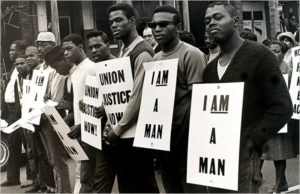
The Role of the Black Scholar
“While I am a product of the poor black working class, whose members labored in factories, stockyards, construction sites, and the kitchens of the well-to-do, the value of education was always supreme”. (Aldon D. Morris, The Scholar Denied: W.E.B Du Bois and the birth of Modern Sociology)
In a society that is faced by the constant struggles of inequality, discrimination, ignorance and racism, education seems to be at the forefront of the marginalized mind. History is a testament to understanding the importance of the “black scholar” within an educational system dominated by the privileged group. Aldon D. Morris took note of this concept when he discovered the works of W.E.B. Du Bois in the world of sociology. Being educated in a time period where the color of your skin determined how you were treated in society, gave a sense of empowerment to a young Morris who battled with the obvious caste system that constantly reminded him of his position as the “inferior”. According to Morris, “caste, peonage debt, and racial violence became an enduring emotional and intellectual obsession that I sought to understand from a young age”. Du Bois’s intellectual contributions to building the “black scholar”, created a movement that contradicted the rhetoric that was fed to Morris, that the black mind was not capable of comprehending the same concepts as the “superior” mind.
For years Du Bois’s contribution to sociological methodologies was ignored by white sociologist because his work included History, Anthropology, Political Science, Economics and the Humanities. Du Bois suggested that, “authentic social science was possible and that the inferior and superior races did not exist”. One can note why this was undermined in the early days of sociology, because in order to address that there is such a thing as racial inequality and racism, then they would have to admit to its existence. this is much like what we are dealing with in present day, United states.
The role of the black scholar in today’s society is represented in different forms and intellectual levels. Recent injustices against the African American community has birthed the syllabus movement, creating specific outlets for people to contribute to educating the masses on the #BlackLivesMatter movement and different events such as Ferguson. These syllabi’s create a dialogue for people to read, understand and address matters that may not draw their interest because they do not connect to them in the same way as I would. Ignorance seems to be a common trend among the population who are not affected by the events that society is facing. This will continue if we continue to lose interest in educating ourselves on the “elephant in the room” or as Albert Einstein puts it, “somebody who only reads newspapers and at best books of contemporary authors looks to me like an extremely nearsighted person who scorns eye glasses. He is completely dependent on the prejudices and fashions of his times, since he never gets to see or hear anything else”. 